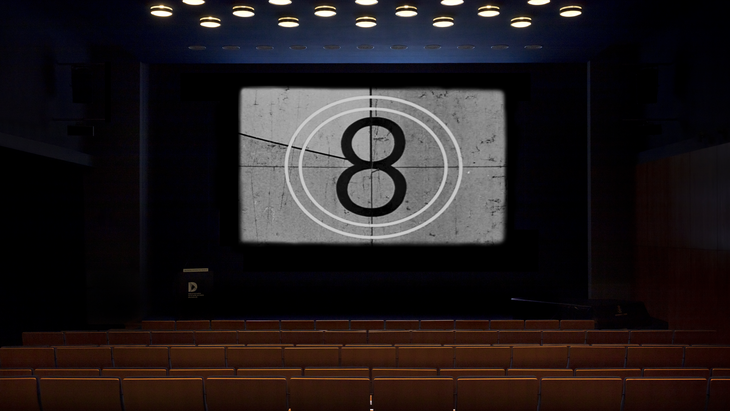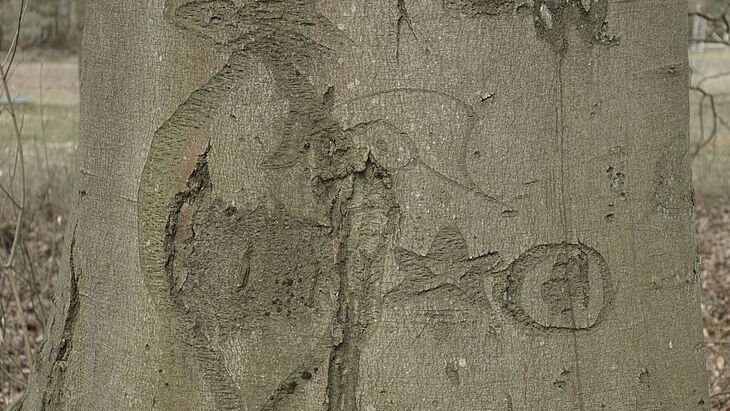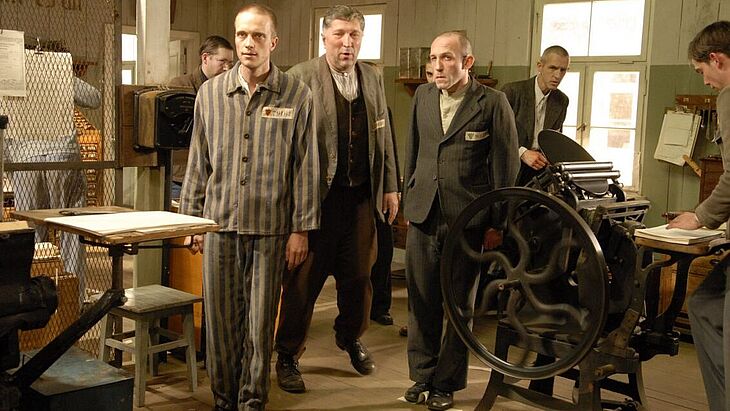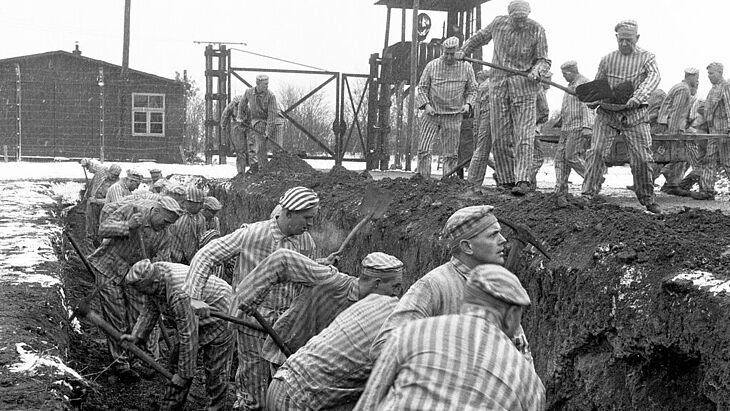“Nobody Welcomed Us”
The Liberation of Concentration Camp Sachsenhausen 80 Years Ago

“We were free without realizing it. We were free without being liberated. Nobody welcomed us, but we didn't complain about that.” This is how French concentration camp prisoner Guy Chataigné laconically describes his personal end of the Second World War in Martin Gressmann's documentary film "Nicht verRecken". As an eighteen-year-old, the Résistance fighter was interned in the Sachsenhausen concentration camp in 1943, had to do forced labor in the brick factory and survived the death march in April 1945.
It only takes about an hour by train from Berlin-Mitte to Oranienburg, where a new concentration camp was established in Sachsenhausen in the summer of 1936. By 1945, 200,000 people were imprisoned here: political opponents of National Socialism, Jews, Sinti*zze and Roma*nja, homosexuals as well as “professional criminals” and “asocials”. While German citizens initially formed the majority, after the start of the war more and more foreign forced laborers, prisoners of war and foreign opponents of the regime were brought to Sachsenhausen and, from 1941, to its numerous subcamps, mainly from the Soviet Union and Poland. Tens of thousands of the prisoners, including around 20,000 women, died of starvation, illness, forced labor, medical experiments and abuse or fell victim to systematic extermination operations by the SS.
April 22 2025 marks the 80th anniversary of the liberation of the camp. To mark the occasion, numerous events will be held at the Sachsenhausen Memorial and Museum, the Death March Memorial in the Below Forest and the Klinkerwerk Subcamp Memorial. To accompany these events, the Zeughauskino, in cooperation with the Sachsenhausen Memorial and Museum, is showing four evenings of feature films and documentaries that approach the site and its stories in very different ways: as a sober description of everyday horror in Egon Monk's epochal television play "Ein Tag - Bericht aus einem deutschen Konzentrationslager" 1939 (1965), as a drama based on authentic events in the Oscar-winning "Die Fälscher" (2007), as a documentary following in the footsteps of the prisoners who were sent on the death march in the spring of 1945 in "Nicht verRecken" (2021) and in a program focusing on Todeslager Sachsenhausen, the first German film about a Nazi concentration camp. (Philipp Stiasny)





